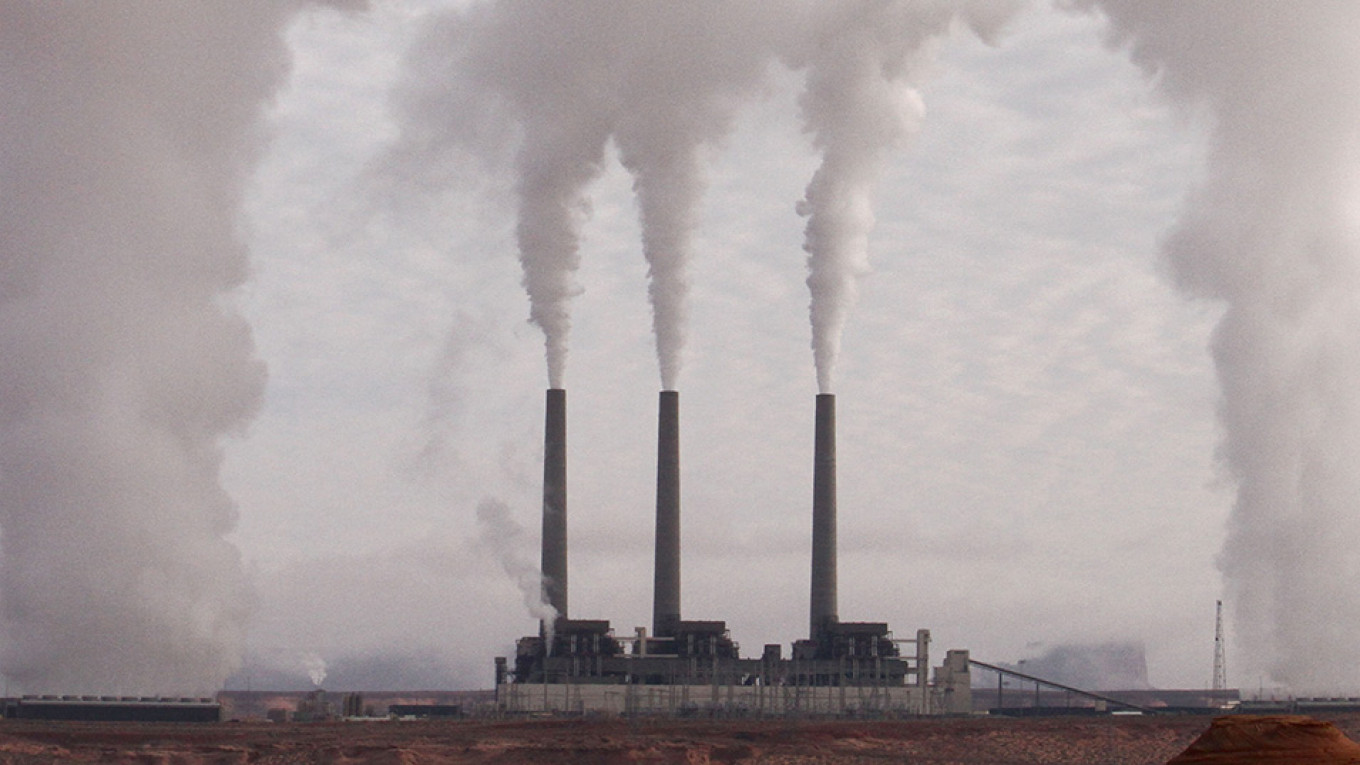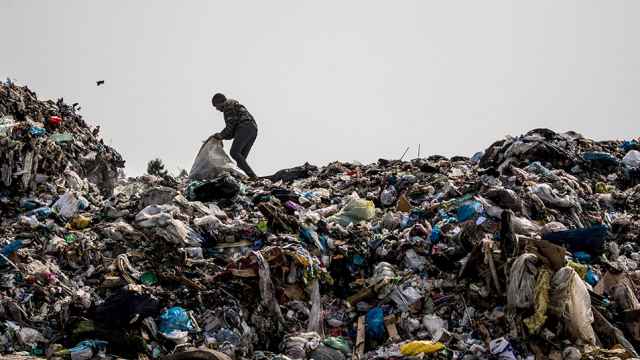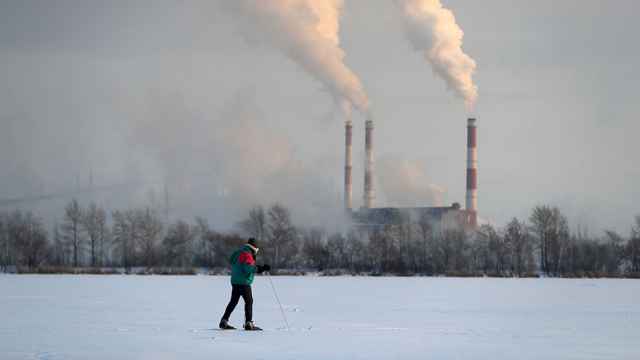The Russian government has drastically watered-down its new package of climate change legislation after push-back from the country’s leading businesses, the Kommersant business daily reported.
Plans for quotas on carbon emissions at Russia’s largest companies, a new national carbon trading system and penalties for the biggest polluters have now been scrapped. Instead, Russia will only go ahead with proposals to measure and collect data on emissions as part of a five-year green audit.
The campaign against a stricter package of measures was led by the influential Russian Union of Industrialists and Entrepreneurs (RSPP) — one of the main lobbying groups for Russia’s largest businesses. The new laws were set to be introduced as part of Russia’s ratification of the Paris Climate Agreement.
Originally, the Russian government proposed introducing new climate legislation in two phases. The first would be a five-year stock-taking exercise to measure company-level emissions and set appropriate quotas for reducing emissions. After that, Russia would then introduce a carbon cap on the country’s biggest polluters and penalties for those that exceed their quotas. Earlier plans also envisaged the creation of a national fund to support emissions reduction and a system of nationwide carbon trading.
However, the RSPP has successfully killed-off the entire second phase, including plans to set individual company quotas or targets, arguing that the government should await the results of the climate audit before introducing new laws and regulations to hold firms accountable for their emissions.
“The idea of putting a price on carbon dioxide in Russia has fallen victim to the industrial lobby,” analysts at VTB Capital said in a research note today. This is despite the fact that “the Paris Climate Agreement envisages a greenhouse gas emission target which is higher than Russia’s current emissions. So introducing the quota system is unlikely to be punitive for businesses.”
The watered-down legislation would “essentially put any actively managed efforts by the government to reduce emissions on ice,” they added.
Mikhail Yulkin, Director of the Center for Environmental Investment told Kommersant: “It is obvious that Russia needed to join the Paris climate agreement only to create a better image and divert attention away from the domestic political events inside Russia over the summer.”
“But the model on which the Russian economy has been based for the past 20 years is dying. Everybody needs to find a way to move money into low-carbon areas of the economy. Under the leadership of Rosneft and Gazprom, this cannot be done.”
A Message from The Moscow Times:
Dear readers,
We are facing unprecedented challenges. Russia's Prosecutor General's Office has designated The Moscow Times as an "undesirable" organization, criminalizing our work and putting our staff at risk of prosecution. This follows our earlier unjust labeling as a "foreign agent."
These actions are direct attempts to silence independent journalism in Russia. The authorities claim our work "discredits the decisions of the Russian leadership." We see things differently: we strive to provide accurate, unbiased reporting on Russia.
We, the journalists of The Moscow Times, refuse to be silenced. But to continue our work, we need your help.
Your support, no matter how small, makes a world of difference. If you can, please support us monthly starting from just $2. It's quick to set up, and every contribution makes a significant impact.
By supporting The Moscow Times, you're defending open, independent journalism in the face of repression. Thank you for standing with us.
Remind me later.







